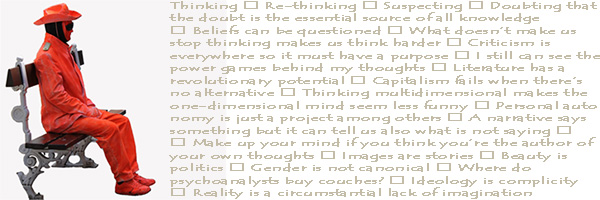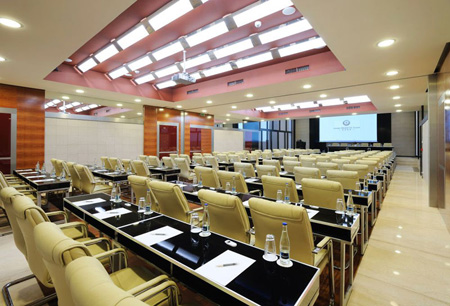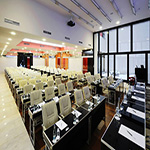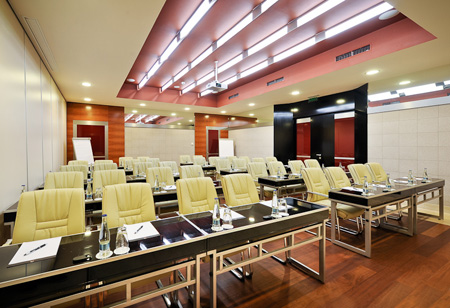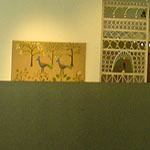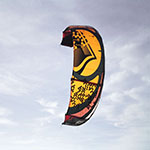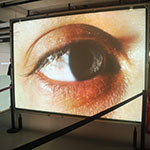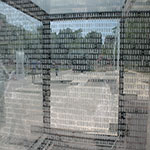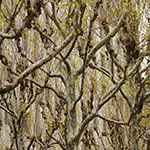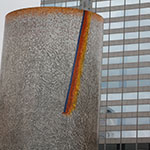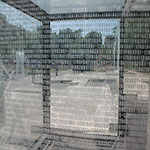Grand Majestic Plaza Hotel
Truhlářská 16, 110 00 Prague 1Conference program
- December 13, 2012
- 13:15 - 14:00Registration (Reception Desk, Grand Majestic Plaza, Foyer)
- 14:00 - 14:30Welcome and Opening Remarks
- 14:30 - 16:00Panel 1 – Performing Identity: The Relationship between Identity and Performance in Literature, Theatre and the Performing Arts
- 16:00 - 16:30Coffee Break & Snack
- 16:30 - 18:30Panel 2 – Performing Identity: Explorations of Subjectivity and the Self - From Literature to Visual Arts
- 18:30 - 19:00Open Floor Discussions
- 19:00 - 19:30Welcome Reception (Grand Majestic Plaza - Atrium)
- 19:30 - 21:00Dinner – Restaurant Grand Majestic Plaza
- December 14, 2012
- 09:30 - 11:00Panel 3 - Performing Identity: Language, Silence and Imaginary Geographies in Literature and Performing Arts
- 11:00 - 11:30Coffee Break & Snack
- 11:30 - 11:30Panel 4 – Performing Identity: Biographies, Myths and National Identity Making Symbols and Practices
- 13:00 - 14:30Lunch – Restaurant Grand Majestic Plaza
- 14:30 - 16:30Panel 5 – Critical Applied Politics
- 16:30 - 17:00Coffee Break & Snack
- 17:00 - 19:00Panel 6 – Critical Questionings: Social Causes and the Pursuit of Social Beliefs
- 19:00 - 21:00Optional Social Program
- December 15, 2012
- 09:30 - 11:30Panel 7 – Political Economy and Critical Re-Thinkings of Mode(l)s of Capitalism
- 11:30 - 12:00Coffee Break & Snack
- 12:00 - 13:00Closing Session and Conclusive Discussions
- 13:00 - 14:00Lunch – Restaurant Grand Majestic Plaza
- December 13, 2012
The Euroacademia Global Forum of Critical Studies
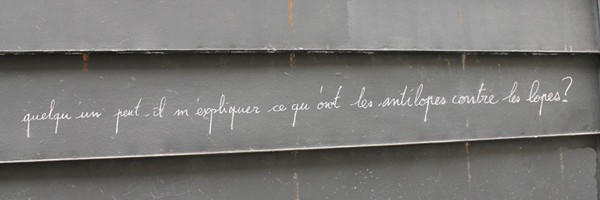
- Conference Description
- Participant’s Profile
- Registration and Fee
- Social Activities and Publication
- Important Dates
- Venue and Directions
- Conference Program
- Panel 1
- Panel 2
- Panel 3
- Panel 4
- Panel 5
- Panel 6
- Panel 7
The Euroacademia Global Forum of Critical Studies
Asking Big Questions Again
13-15 December 2012, Prague, Czech Republic
Grand Majestic Plaza Hotel
Some say that the 21st Century or modernity altogether made humans more concerned with doing rather than being. As the classical Greek civilization valued the most reflexive thinking as a form of freedom from natural necessities, contemporary times profoundly involve individuals and the imaginary accompanying social practices in a restless logic of consumption, competition and engagement that profoundly – or some would say, radically – suspends or indefinitely postpones the autonomous capacity of human beings to question and reflect upon the social order and the meaning of social practices. The fast advancement of the logic of post-industrial societies, the gradual dissolution of alternative models to the capitalist logic and a multitude of other alerting factors pushed ahead a global spread culture of one-dimensional productions of meaning that advances a closure rather than a constant reflexive re-evaluation of cultural/social practices.
Many alternatives at hand are often condemned to marginality or lost in the plural practices where everything goes as long as it’s part of an intellectual market. The ‘fatal strategies’ of post-industrial societies to keep individuals captive, busy and seduced by contingent social arrangements and economic practices minimized the questioning detachment required to evaluate and give meaning through reflexive criticism and unlimited interrogation. Various labels were given to our unfolding times from apocalyptic ones to some more comforting yet not by chance lacking some vital optimism. Despite a wide-spread discontent and suspicion towards the daily realities of our current societies, most of the big questions are often left outside by the self-involved active pursuit of an imagined well-being that is no longer transgressed by harsh critical evaluation of its meaning. The academic arena itself also advances, supports, integrates and promotes limited particular methodologies that generate an effect of mainstreaming and often keeps researchers or practitioners out of the battle-ground for big questions.
The ongoing economic crisis made reality even harsher and pushed ahead the need for more thinking as many habitual categories lost their meaning or relevance. New ways of thinking could transgress some inappropriate conceptions or misconceptions that preserve their centrality due to the mechanics of habits. This is a time when a call to thinking is well-placed. This is a call to arms for critical studies that promotes alternative, questioning and multi-dimensional thinking.
The Euroacademia Global Forum of Critical Studies aims to bring into an open floor the reflexive and questioning interaction among academics, intellectuals, practitioners and activists profoundly concerned with evaluative understandings of the world we’re living in. The focus of the forum is to initiate an arena where no question is misplaced and irrelevant as long as we acknowledge that evaluation, critical thinking and contestation are accessible trajectories to better understand our past, present and alternative scenarios for the future.
Participant’s Profile
The conference is addressed to academics, intellectuals, researchers and professionals, practitioners and activists profoundly concerned with evaluative understandings of the world we’re living in. As the nature of the conference is intended to be multidisciplinary in nature different academic backgrounds are equally welcomed.
Post-graduate students, doctoral candidates and young researchers are welcomed to submit an abstract. Representatives of INGOs, NGOs, Think Tanks and activists willing to present their work, research, experiences or reflections are welcomed as well to submit the abstract of their contribution. Euroacademia does not promote the byzantine association of people with their institutions. As well the distinction between senior and junior researchers is not applied as a cleavage.
Abstracts will be reviewed and the participants are selected based on the proven quality of the abstract. The submitted paper for the conference proceedings is expected to be in accordance with the lines provided in the submitted abstract.
Registration is now closed
The participation fee includes:
- the registration fee,
- participant’s package with all the materials for the conference
- a copy of the electronic volume
- access to Euroacademia discussion group and newsletters
- discounted rates for participation in the future Euroacademia conferences
- daily welcome coffee with snacks and unlimited conference drinks (water/sodas)
- coffee brakes with snacks for all the duration of the conference
- sparkling wine opening reception with snacks on 18th of October 2012
- a 4 course dinner on 13th of December 2012 at the 4* Grand Majestic Plaza
- a 4 course lunch on 14th of December 2012 at the 4* Grand Majestic Plaza
- a 4 course lunch on 15th of December 2012 at the 4* Grand Majestic Plaza
- certificate of attendance
- optional social program.
Social Activities and Publication
A specific spot in the conference program will be dedicated to social networking and therefore all the participants interested in setting or developing further cooperation agendas and prospects with other participants will have time to present and/or promote their project and express calls for cooperation.
A specific setting (Social Corner) for promotional materials connected with the topic of the conference will be reserved for the use of the participants. Books authored or edited by the participants can be exhibited and promoted during the whole period of the conference and can also be presented within the conference package based on prior arrangements.
An optional dinner and a social event will be organized for the second evening of the conference in a typical Czech cuisine restaurant as optional program for the willing participants. The social dinner will be held based on participant’s confirmation and it costs 30 Euro to be covered by participants.
Publication:
Selected papers will be published in an electronic volume with ISBN after the confirmation of the authors and a double peer-review process based on an agreed publication schedule. All the papers selected for publication should be original and must have not been priory published elsewhere. All participants to the conference will receive a copy of the volume.
| Important Dates | |
|---|---|
| 15 October 2012 | Deadline for Submitting Panel Proposals |
| 5 November 2012 | 300 words abstracts and details of affiliation |
| 6 November 2012 | Notification of acceptance |
| 8 November 2012 | Sending the participation form |
| 12 November 2012 | Payment of the conference fee |
| 25 November 2012 | Sending the draft paper to be uploaded on the web site of the conference |
| 30 November 2012 | Publication of the conference program and uploading the draft papers on the website |
| 13 December 2012 | The conference commences |
Venue and Directions
The conference will take place in the conference premises of the exclusive 4 stars deluxe design Grand Majestic Plaza Hotel, centrally located in the heart of Prague, easily accessible from the historic center and within a walking distance from all the major tourist attractions: just few steps away from the famous Municipal House, Gothic Powder Gate, significant Republic Square and the most attractive shopping centre Palladium.
Hotel Grand Majestic Plaza, Prague
Truhlářská 16, 110 00 Prague 1
Czech Republic
Tel.: +420 211 159 100
Fax: +420 211 159 159
E-mail: [email protected]
Prague is a wonderful European city with a very rich history and a vivid passionate intellectual life; a place full of various and inspiring cultural events, sightseeing opportunities, great food, exquisite architecture and of course the city that brings easily to your mind Jan Hus, Franz Kafka, Jan Palach, the Prague Spring, and Milan Kundera. After all these, the unique atmosphere gives anyone a chance for personal memories and reveries. Prague is a city of beautiful moments!
See full information about the conference Location & Map:
HERE
Conference participants are responsible for arranging the accommodation and travel. However, discounted rates for some specific hotels can be arranged by organizers and announced to selected participants upon request.
Performing Identity: The Relationship between Identity and Performance in Literature, Theatre and the Performing Arts
- Translocal Dynamics of Contact. Reactions to Steven Cohen’s Performances in Africa and EuropePerformance art positions itself as potentially contestable, democratic and open to and curious about disagreement. Its ephemeral and often erratic character seems to be exemplary for any description or scrutiny of the dynamics of contact. Most of these contacts of the performer's body, identity and intention with an audience in a specific space and time have occurred within the ambit of a genuinely art-friendly community - galleries, museums or city centres.Melanie Klein, Free University Berlin, Germany
- Transgressive Figures: Performance Art in China. A Case Study from 1985 until TodayThe focus of the following paper is an investigation on performance art presented between its appearance in the year 1985 and 2010 in mainland China. The actions discussed are closely related to socio-political upheavals in the country. They can be seen as a reflection and reaction to those socio-political events in which the abject 1 body becomes a site of identification. For this wave of shock art the art historians Thomas Berghuis and Cheng Meiling coined out the terms flesh art2 and animalworks3. The time frame suggested by both scholars is the decade between 1994 and 2004.Petra Pölzl, Dramatics & Chinese Studies, Free University of Berlin, Germany
- Social Accessibility: Relationally You, Relationally ConstructedAmerican black art is consistently interpreted as a political, economic, social and psychological response to slavery and racism. Art historical scholarship on American black art has a tendency to celebrate the lone, token black artist: the artist of rare genius by virtue of minority and marginality. Apart from the infrequent editor, curator and academic, black artists and their production have been denied universality by such codified statements masquerading as criticism.Lorena Morales, Independent Scholar, New York, USA
Performing Identity: Explorations of Subjectivity and the Self – From Literature to Visual Arts
- The Multiplicity of the Lyrical Subject in the Construction of Identities: Poetry and Visual ArtsWe will pay a particular interest to those activities which worked around the poetic individual decentralization which allowed the rupture of space and time necessary to gather at the same artistic form all those personalities we were and we are being at the moment of creation. Our goal is to compare and check the procedures followed in the operation, both in literature and visual art.Amelia R. Mañas
- Staging the Modernist Self: The Self-Portraits of William OrpenOne of the most financially successful and honoured painters of the twentieth century, William Orpen’s reputation, now diminished, rests predominantly on his accomplished society portraits and war paintings. Yet Orpen (1873-1931) also produced an extensive body of compelling self-portraits, depicting himself in a variety of guises that mark diverse performances of his ‘self’. This neglected area of Orpen’s production stands apart from his distinctly official works as the painter of the British establishment and war artist and as such merits attention for its singular engagement with the modernist self.Angeria Rigamonti di Cutò, Independent Scholar, London, United Kingdom
- BETWEEN YOU AND I. The Aesthetic of the Real: A Contribution to a Holistic Art Reception“What pattern connects the crab to the lobster and the orchid to the primrose and all the four of them to me? And me to you?” All his life, Gregory Bateson was on a quest to find the “pattern” that everything connects. I really cannot say at this point if he found a final answer to this question. In any event, it would have been his answer.Tina Guthknecht, Independent Researcher, Munchen, Germany
- Material Antagonisms; Melancholia, Undeadliness and PerformanceI propose that the zombie might encourage the contemporary practitioner to reclaim the materiality of melancholia in order to trouble the ‘exclusionary systems of identification’ enforced by contemporaneity. Instead of being framed as depressive failure, the practitioner's melancholia might post-critically collapse the identity-based protocols of a live situation with a performance of zombie-like affect. The practitioner would harness melancholia as an embodied and haptic objectivity beyond the constraints of subjective identity.Simon Clark, Goldsmiths, University of London, United Kingdom
Performing Identity: Language, Silence and Imaginary Geographies in Literature and Performing Arts
- America Played Out: Fictive Dominance in Richard Maxwell’s Neutral HeroIn Neutral Hero (The Kitchen, 2012), auteur writer/director Richard Maxwell of the NYC Players undertakes “the utterly impossible feat of portraying neutrality.” For an artist who has spent a career effacing the extraneous vocal and physical stylings of his performers, this endeavor is in one sense entirely of a piece with his peculiarly asymptotic larger project of banishing artifice from the stage. In another sense Neutral Hero reveals an interest in something else, an interest that may have been latent all along, in that indivisible remainder which no amount of diligent, arithmetical manipulation can eradicate.Jessica Rizzo
- The Anomie of Silence in Jonathan Safran Foer’s Extremely Loud and Incredibly CloseSilence enacts, I argue, the grandfather's exile from his homeland and the life he had envisioned, from his own words, his family, and the conventional parameters that frame existence ('yes' and 'no,' 'something' and 'nothing'); too, silence constitutes an exile from the creative potential of "the spoken word" and from life, because of a fear of creating destruction. But more than impervious and passive (as some have argued), is silence not a mode affective and 'teeming' (as Cage describes it), and perhaps even necessary for the reconstitution of one's self. In the text, I argue, silence emerges as an exile into a different mode, a mode of restless mobility that is, at the same time, open and generative.Mihaela P. Harper, Bilkent University, Turkey
- Staging Multiple Identities: The Temporary Facade at Palazzo Farnese for Queen Christina of SwedenFascination with Queen Christina (1626-1689), has endured since the 17th century. Giacinto Giglio (1594-1641) wrote, 'while many said she was a hermaphrodite, she professed to be a woman." King Louis XIV marveled, "she swore like a trooper." Most striking, however, are the multiple identities she was assigned in Rome: unmarried queen who abdicated her throne; convert to Catholicism; supporter of the Catholic Church; paradigmatic Catholic ruler; founder of the Academy of Arcadia; collector and connoisseur of art.Margaret Kuntz, Art History Drew University Madison, New Jersey
Performing Identity: Biographies, Myths and National Identity Making Symbols and Practices
- “Biographical, Historical, Sociological and Literary”: American Myth and Symbol RevisitedThe time is right for a reconciliation of the myth and symbol school of American Studies, which was influential in the United States from the 1930s to the 1960s, with its poststructuralist and postnationalist successors. After introducing the central claims of this school and summarizing subsequent criticism made against them, this essay defends it from two angles: cognitive and pedagogical. The cognitivist discussion examines the way that the myth and symbol critics theorized symbolism and its relation to emotion at three separate levels of culture.Andrew C. Yerkes, Nanyang Technological University, Singapore
- Thomas Cole: An Exegesis of TimeThis paper examines that being present occurs in a privatized public space during a post-structuralist slippage between the tension of nature and civilization. As Cole’s painting series The Course of the Empire (as his subsequent series, The Voyage of Life) is bipartite in its assessment of idealism and reality according to the canvas number and sequencing, this paper will culminate in a consideration of the slippage between the collective and individual identity within the American context. Further, providing a new reading of the reception of Cole’s The Course of the Empire.Lorena Morales, Independent Scholar, New York, USA
- A Symbolic Ethnography of Hope in the Era of Hyper-Consumption: Uncovering Love as a Nordic -Transylvanian Synthesis through Bureaucratic SublimationThe proposed text is a “thick description”(Geertz, 1973) of the “symbolic order”(Lacan, 2006:12) mediating love letters, emails, and sms-es in the contemporary context of consumption-oriented and media-driven emotional blunting and hypersensitivity to clichés. The text is left on purpose in its raw format in order to allow for an unmediated understanding of the mechanisms inherent to it. The purpose is to show the paradoxical nature of the symbolic and its transformative potential to the imaginary, which in turn might constitute the very seed of hope for an alternative scenario of contemporary emotional experience.Ioana Ionesco, Department of Global Political Studies, Malmö University, SwedenTor Torsson, Department of Clinical Sciences, Lund University, Sweden
- „La Réunification – C’est Moi“ – Performing Identity in Politics: Chancellor Helmut Kohl and the German Reunion in the Election-Campaigns of the 1990iesAbstract: The German reunion in 1990 marks not only a big change for German society, it can also be seen as the turning point in the so far luckless carrier of the German Bundeskanzler Helmut Kohl. Within no time he transforms from the unfortunate Chancellor close to resign in 1989 to the worldwide acknowledged „Kanzler der Einheit“ and thus to a Statesman of high reputation. The transforming of this (public) Identity can be traced back by analyzing his Election-Campaign-Spots. In my Essay I want to discuss the pictures provided in the spots of the years in 1990, 1994 and 199Christoph Lutz-Scheurle, University of Applied Science in Dortmund, Germany
Critical Applied Politics
- Critical Comparison of “Green Growth” and “Carbon Footprint” Theories: Analysis of Low-Carbon Innovations Implementation Practice as a Tool for Climate StabilizationSome case studies of implementation of renewable energy technologies and the technologies for carbon capture and storage (CCS) are used to demonstrate a contradiction between economic growth and environmental (climatic) consequences of their implementation. It is proposed to switch to open innovation principles in order to involve the whole mankind into solving the issues of climate stabilization. The necessity of returning to the paradigm of “limits to growth in all spheres of human activity” as an alternative way of human development is substantiated.Oleksiy Saavkevych, Donetsk National University, UkraineMykola Shestavin, Donetsk National University, UkraineSvitlana Bespalova, Donetsk National University, Ukraine
- Test of Okun’s Law in Albania During the Period 1995-2010The main objective if the study is to test the validity of Okun’s law during the period 1995-2010 in Albania and to find a confidence interval for Okun’s coefficient. When the annual real GDP growth and annual unemployment rates are estimated for Albanian economy over the specified period, it is found that one percent reduction in the annual unemployment rate would produce approximately 1.54% increase in the annual real GDP.Dritan Shoraj, Faculty of Economy, University of Tirana, AlbaniaFejzi Kolaneci, University of New York in Tirana, Albania
- The Public Opinion ProducersThe study contends that two moments of Turkey’s post-1980 democratization condition the consolidation of the democrats’ position within the arena of opinion production: (1) the rise of PKK’s armed contention against the domination of a Turkish ethnic identity; (2) the rise of political Islam as a contender for municipal and parliamentary power. It is argued that these political processes in Turkey have created a cultural atmosphere in which high-profile democratic opinion producers interact (through the exchange of ideas in the media sphere) with rulers in power on matters concerning democratization.Eylem Akdeniz
Critical Questionings: Social Causes and the Pursuit of Social Beliefs
- Raising Funds At All Costs? Contemplating the Campaign Strategies of Humanitarian OrganizationsFocusing on a recent fund-raising campaign used by a 'humanitarian' anti-violence organization based in the UK, I begin by examining how it is designed to appeal to specific emotions. Second, mindful of the increasing fiscal cuts to charitable organizations, I consider how the organization may be required to traffic in particular stories in order to raise the resources needed to offer their services. Lastly, given the widespread desensitization to violence, I consider the need for controversial strategies that attempt to stir (if not shock) public compassion. I argue that by tracing the relationships between the emotions, economies, and ethics behind certain strategies, one can glean important insights about social responsibility.Gada Mahrouse, Simone de Beauvoir Institute, Concordia University, Canada
- Silence and the Atrophy of ActivismThe slogan SILENCE = DEATH, ubiquitous in 1980’s activism, was only possible through the sharing of the legacy of Nazizeit. Widely printed on placards, t-shirts, and a staple at public protests, the slogan combined prevalent symbols of 1980s activism: links with historical persecution, the dangers of a shared communal silence, and a stark reminder of a physical if not societal extermination. I posit that not only is the slogan linked to the narrative of Nazizeit but that it finds its physical embodiment in Berlin’s 2008 memorial to gay victims of the Holocaust. These artifacts represent counter-monuments, rhetorical artifacts with an aim “not to console but provoke … not to be ignored by passerbys but to demand interaction.” This paper explores that interaction and intersection.Scott Gratson, Temple University, USA
- Collective Performance as the Verification of Equality: The Case of Arts Against Cuts and the Turner Prize InterventionThis paper seeks to describe the eruption of British anti-cuts activism of winter and spring 2010/11 as an instance of Rancièrian politics. My particular focus will be those performative activities organised under the banner of the Arts Against Cuts collective: marches, occupations and public interventions, in particular the Turner Prize action of December 6 2010 (See: http://artsagainstcuts.wordpress.com/). My objective is to examine how grass roots arts-activism of this sort operates, especially in terms of the pressure it manages to exert on power.Steve Klee, University of Kent, United Kingdom
- The Work In CommunitiesIn this paper, subjective well-being aspects and the needs of overcoming barriers to conquer and to keep quality of life are seeing as a way of reaching states of satisfaction and happiness. The dimension of subjective well-being is respectively integrated with cognitive, affective and social aspects. It is explained the phenomena of the thought as an intermittent succession of images organized by the mind in the field of the memory; images that come from the environment and are registered in our memory thanks to the body's experience of space and time.Claudio Ribeiro, Concordia University and Institut National de la Recherche Scientifique - Urbanisation, Culture et Société, Montreal, Canada
Political Economy and Critical Re-Thinking of Mode(l)s of Capitalism
- Market, Capital and Inequality: Lessons from the Peruvian Experience as an Emerging Economy 2000-2011this paper shows how the lack of long term vision from both business and white-collar public sector, in order to increase the productivity of factors and promote redistribution of the income, is making impossible to build up structural changes for a more egalitarian society. The gap between the richest and the poorest in Peru after a decade of positive macroeconomics indicators should be explained focusing on the pattern of wealth distribution.Enrique Vásquez Huamán, Universidad del Pacífico, Lima, Peru
- Diagnostics of Our Times: Where Is the 21st Century Heading? World Economy And Society on the Road Towards Megacapitalism“Mega-capitalism” we see as the next stage in the development of capitalism, which will be dominated and led by both mega-corporations and mega-banks. This, in turn, will result with global cybernetic robotization of workers. This process might be supported by neuro-economics, which we would define as cybernetisized neoclassical economics applied under imperfect market conditions.Sure, the process will be followed by the death of the “territorial” state. This process reflects the centralization of capital on a global scale. This process, however, is evolutionary and repetitive since the beginning of the capitalistic way of production.Dragoljub Stojanov, Faculty of Economics, University of Rijeka, Croatia
- The Eurozone Crisis: Transformative Impact on the European Project and Model(s) of CapitalismEurope in these days appears to move from one ‘crisis’ to the next. The deep and apparently perennial crisis of the Eurozone has been on the headlines for a couple of years now, and shows signs of a further exacerbation. The crisis raises several issues of interest for students of political science, political economy and international relations. What appears clear is that the problems of the Eurozone are signals of a weakening (if not an outright failure) of European integration as it was envisaged starting from the early 1990s.Davide Bradanini, IMT Institute for Advanced Studies Lucca, Italy
- The European Economic Crisis: Revitalizing National Identity Through Political Cartoons and ImagesDoes the current Euro-crisis assist in intensifying the conflict between national and Europe' s collective identity by triggering nationalist attitudes? Is there a cultural representation of this conflict in mass media (political images and cartoons) and what is its impact on the attempts for creating a collective Europe and a pan-European public sphere through cultural integration? In detail, the subject of this research questions whether the economic polarization between the PIGS and European northern countries (such as Germany, France, Britain) has also triggered, a cultural polarization and the detachment of Europe into 'two Europes', consisting of poor and rich.Georgios Tsarsitalidis, Uppsala University, Sweden











